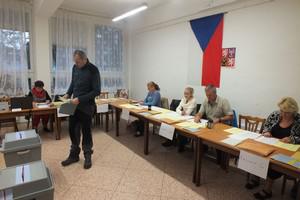The Russia connectionFake news kicks into high gear in Czech presidential runoff
Jiri Drahos, the pro-West, pro-EU challenger of incumbent Czech president Milos Zeman, came in second in the first round of the Czech presidential election, held 12-13 January. Zeman is one of Russian President Vladimir Putin’s strongest allies in central Europe, and the Russian government’s disinformation specialists have been ordered to help him win the runoff election, which will be held 27-28 January. These specialists have been successful in their social media efforts to boost the political strength of Marine Le Pen and her National Front in France; Geert Wilders and his Party of Freedom in the Netherlands; the Alternative für Deutschalnd (AfD) in Germany; Beppe Grillo and his Five Star movement in Italy; and increase the influence of other populist, ethno-nationalist movements such as Golden Dawn in Greece, Ataka in Bulgaria, and Jobbik in Hungary. They have also helped Donald Trump win the 2016 election. In the last two weeks, these disinformation experts have been targeting Drahos and his pro-West supporters.

Czech voter approaching ballot // Source: wikipedi via yahoo.com
In the first round of the Czech presidential election earlier this month, Jiri Drahos was variously portrayed — without substantiation — as a pedophile, a thief, and a communist collaborator.
The smears were part of a string of unfounded allegations in social media and on websites suspected of dealing in fake news.
Now that the pro-Europe challenger’s campaign in a second-round runoff against incumbent Milos Zeman, one of Russian President Vladimir Putin’s strongest allies in central Europe, is in full swing, the disinformation gloves have come off once again.
Within days of the start of the runoff, which will culminate in balloting on 27-28 January, pro-Zeman websites and social media were sending out messages and publishing ads accusing the 68-year-old scientist of seeking to open the country’s borders to immigrants, playing on local fears of a possible influx of Muslim extremists.
“The deciding factor [in the second round] is expected to be the intensive disinformation campaign directed against Professor Drahos,” says Jakub Janda, deputy director of the European Values think tank in Prague.
“We’ve already seen a growing number of attacks related to migration and his personal affairs, which is likely to intensify,” Janda adds.
Much of the focus has been on about 30 or so pro-Russian websites that have published a raft of conspiracy theories, slanderous articles, and anti-Western rhetoric against the United States as well as NATO and the European Union, both of which count the Czech Republic among their members.
Meanwhile, the sites consistently praise Zeman, who opposes immigration and is seen as pro-Russian.
Zeman won the first round on 12-13 January with 38.6 percent of the vote, compared to Drahos’s 26.6 percent second-place showing.
“I was expecting this type of lies and disinformation, common slander,” Drahos said in response to a wave of ads on 18 January that called him a “welcomer” in reference to wanting to increase immigration.
